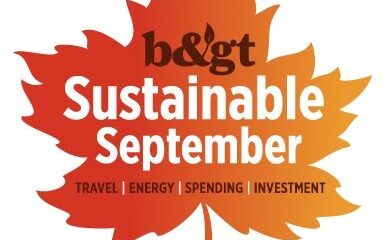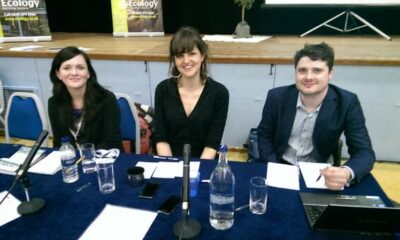

Invest
Ethical finance groups work together
Two long-established ethical finance organisations have agreed new arrangements that will make more money available to democratic enterprises in disadvantaged communities.
Ecology Building Society has lent £500,000 to Co-operative & Community Finance, and under the terms of the government Community Investment Tax Relief (CITR) scheme this money will be used to stimulate enterprise in deprived parts of the UK.
Co-operative & Community Finance, established in 1973, is the oldest Community Development Finance Institution in the UK and one of the few that is authorised and regulated by the Financial Conduct Authority in the conduct of investment business. It normally has £4m to lend to member-owned enterprises but following a record year of lending in 2014 more funds were needed to meet the increasing demand.
Ecology Building Society was set up in 1981 with the aim of using members’ savings to provide mortgages and loans to properties and projects that have a positive impact on the environment and communities. It has over 9,000 members with a total of £138m savings.
The two organisations had worked together before in the joint funding of housing co-operatives and community-owned shops, so a closer partnership which benefited them both and helped them deliver their objectives made sense.
Ian Rothwell, Development Manager at Co-operative & Community Finance, said: “When we realised that we may need additional funds to meet the demand for our ethical finance it made sense to approach Ecology Building Society. We share similar values and are keen to invest in the same projects and enterprises.”
Paul Ellis, Chief Executive of Ecology Building Society, said: “We are pleased to be strengthening our links with Co-operative & Community Finance who have an excellent track record in working with start-ups in the community sector. We strongly believe in finance organisations pooling their respective skill-sets for the common good, enabling us to amplify our impact. This collaborative approach is something that our members welcome.”
In a further display of the growing closeness between the two ethical finance organisations, Ian Rothwell was invited to address Ecology Building Society’s well attended AGM in Liverpool.
The CITR scheme, launched in 2002 and revised in 2012, was devised to stimulate the flow of private finance to support enterprise in the UK’s deprived communities. This rare case of two member-owned enterprises using the scheme for mutual benefit is a pragmatic example of the co-operative value of self-help.


 Environment12 months ago
Environment12 months agoAre Polymer Banknotes: an Eco-Friendly Trend or a Groundswell?

 Features11 months ago
Features11 months agoEco-Friendly Cryptocurrencies: Sustainable Investment Choices

 Features12 months ago
Features12 months agoEco-Friendly Crypto Traders Must Find the Right Exchange

 Energy11 months ago
Energy11 months agoThe Growing Role of Solar Panels in Ireland’s Energy Future




























